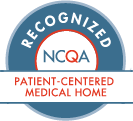Confidentiality and Medical Records
We have always protected our patients' right to privacy.
There are new, far-reaching laws affecting the handling of patients’ medical information that formalize much of what we have always done. However, these laws do affect some common situations, restricting our ability to take shortcuts, even with your permission, even as a courtesy to longstanding friends and patients. Parents generally have access to and the right to control their children's health information. However, by law there are exceptions that serve to protect minor's confidentiality. It is in these areas, where competing rights of parents and adolescents exist, that misunderstanding can easily crop up. We want to clarify the ground rules governing them up front as much as possible.
While we strongly encourage our adolescent patients to share their problems and concerns with their parents, as physicians, we believe we are legally and morally bound to honor the older adolescents' request for confidentiality, and we do encourage them to initiate calls directly to us about their problems. Although we generally see adolescents alone (at least initially), we hope that parents will accompany them to the office, especially for routine visits. This not only gives us an opportunity to discuss our findings with the parent and adolescent together when appropriate, but also provides an opportunity to obtain information the adolescent may be reluctant to discuss.
The details of the confidentiality rights of minors (from 13th to 18th birthday) in Connecticut can be daunting to plow through (for reference, read Adolescent Health Care - Legal Rights of Teens 4th ed, Center for Children's Advocacy Medical Legal Partnership Project, 2010; or visit their website). Basically, among others, minors have the right to confidentially consent for and obtain treatment for reproductive health care, drug or alcohol dependency, initial mental health treatment, and/or examination and treatment for pregnancy, sexually transmitted diseases or infection.
Additionally, State regulation preserves and respects the existing practice of allowing parents, their children, and the health care provider to enter into agreements enabling the health care professionals to provide confidential care to minors. An example of this is an adolescent who visits the pediatrician with a parent/guardian for a routine physical exam. Under protocol developed by the American Academy of Pediatrics, during the exam the pediatrician should raise questions about risk-taking behavior such as drug and alcohol use and sexual activity. Typically the parent provides consent to this exam, but the pediatrician explains to both the parent and the minor that the exam should be private and that the pediatrician will keep the minor's confidences. Where the parent assents to this agreement, the minor, and not the parent, will have the right of access to, and control over health information covered by the agreement ((See 45 CFR §164.502(g)(3)(iii)).
Ideally, all family members should be able to freely and openly share their concerns and problems with each other. Unfortunately, for some issues for some patients this is not always the case. If an adolescent patient in our practice has a problem they do not want shared with others, we want them to feel safe discussing it with us, so that we can help treat it. This has been our wish as parents of our own children, and one with which nearly all parents agree. In our practice patients have always been given confidentiality as of their 13th birthday. By bringing their minor children to Wildwood Pediatrics and utilizing our services, parents/guardians are specifically consenting and assenting to this practice, therefore the minor child's Individually Identifiable Health Information (IHII) is protected from their 13th birthday on. Exceptions to this include cases of suspected child abuse, any child or adolescent who expressed an intent to harm themselves or another person, etc.
Again, confidentiality of medical records is mandated and regulated by Federal and State law. While we are happy to forward a copy of a patient’s medical record directly to another physician’s office, because medical records are so sensitive, we strongly discourage any type of disclosure other than direct mailing to a physician. Routine requests are filled as quickly as possible, generally within 6 to 10 days of having a signed release filled out by the appropriate person.
In order to be certain that that mandatory confidentiality is not compromised, each and every medical record must be reviewed by a physician prior to being released. Therefore, the minimum time we need to process a request is 4 business days.
There is a copying fee (regulated by law) for this service (currently $0.65 a page plus first class postage). This fee cannot be “charged,” that is, it must be paid in full prior to the records being delivered.



